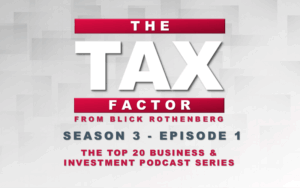Non-resident directors of UK companies
Rehana Earle provides an overview of the key changes and the main issues to consider
Many overseas directors of UK companies visit the UK for short periods of time and do not establish tax residence in the UK.
However, with a harsh penalty regime there could be potential issues that these directors and UK companies should be aware of.
Is a UK tax return due?
Yes. According to HM Revenue & Customs (HMRC), any director of a UK company falls within the criteria for self-assessment. This includes non-resident directors. The current penalty regime applies as follows:
If HMRC issue the individual with a UK tax return, they must file the return by the relevant filing deadline. For 2022/23, the statutory filing deadline is 31 January 2024. A late filing penalty will be incurred if the return is fi led after the deadline even if no tax is payable/due.
If the return shows that there is no UK income and the tax is NIL, then an appropriate disclosure should be made on the return. HMRC have said that they will not issue a tax return every year, in respect of these cases and will instead review the position every few years.
If HMRC do not issue a UK tax return but UK tax is due, then a penalty for failing to notify HMRC will be imposed unless that tax is paid by the fi ling deadline (and the return submitted on a timelybasis). The penalty is potentially up to 100% of the tax due, but is likely to be much lower if the failure can be notifi ed within 12 months of the tax becoming unpaid and is unprompted by HMRC.
Will director remuneration be subject to UK tax?
Yes. A non-resident director of a UK company is an offi ce holder, and any income receieved in respect of this UK role should be treated as earnings in the UK and subject to UK wage tax withholding (PAYE). Double tax treaties do not usually offer any protection in this regard. However, if the individual is not remunerated in any way, either by the UK or overseas entities for the UK directorship, there should be no UK tax liability.
In certain circumstances, HMRC could try to allocate a proportion of mthe director’s total pay to the UK directorship role (e.g. based on the time spent working in the UK). In practice this is diffi cult for HMRC to do, as it is essentially a question of fact and is based on the commercial reality and judgement. It is however, recommended that the director arrangements are well documented, to ensure this risk is
reduced.
Are UK accommodation and travel expenses taxable?
HMRC takes the view that the accommodation and travel expenses of a non-resident director performing a UK director role are taxable in the UK in the first instance. This is regardless of whether the costs are borne in the UK or overseas, because the UK is treated as the regular place of work for the director role.
Employer reporting
The employer tax reporting approach will depend on the form in which these benefits are provided:
If the company provides the accommodation and travel directly (e.g. the travel and accommodation is in the company’s name and settled directly by the comapny), these costs would usually be reported as a taxable employee benefit on Form P11D.
If the individual is reimbursed for the accommodation or travel expenses (i.e. the invoice for the services is in the individual’s name), the company would be considered to be meeting the individual’s pecuniary liability and the payment/reimbursement of these costs should be subjected to PAYE via the payroll.
The UK company providing the travel and accommodation expenses may have a PAYE obligation on this remuneration, mdespite not physically paying the director and, in some instances, not knowing what or exactly when they are paid. It may be possible to include the taxable expenses on a PAYE Settlement Agreement (PSA). This is where the company would gross-up the taxable benefit and meet the tax liability on the benefit by direct settlement with HMRC, thereby removing the PAYE or P11D reporting of these items. This can be a practical solution.
Are UK social taxes (NICS) due?
The NICs position is potentially quite complex.
The position may depend upon where the non-resident director has ongoing social tax obligations and what other directorships they hold as well as the location of the other directorships (if applicable). It can also depend upon whether the other jurisdiction(s) treat company directors as employees or self-employed individuals.
As a broad principle, a non-resident director who comes to work in the UK from a European Economic Area (EEA) country or from a country with which the UK has a Social Security Totalisation Agreement, will be exempt from paying UK NICs. Similarly (and again providing the A1 or Certificate of Coverage is held for the relevant period), no employer NICs would arise on the director’s fees.
There are also some concessions for non-resident directors who come to work for a UK company from outside the EEA and from countries with whom the UK has no Social Security Totalisation Agreement. For example, where the only work the director does in the UK is to attend board meetings and various conditions are msatsified regarding the frequency, and number of these visits to the UK are satisfied, by concession no NICs would be imposed by HMRC. However, care should be taken with this concession e.g. if the non-resident director is also a director of another UK company.
Accommodation and travel costs
HMRC have provided specific guidance in respect of the accommodation and travel expenses of directors. Whilst the UK employer should continue to report the director expenses (on Form P11D or via the payroll), directors may be able to treat these items as non-taxable subject to certain conditions, including only coming to the UK to perform a task of ‘limited duration’ or a ‘temporary purpose’, and spending less than 40% of their director role at a workplace. These conditions only apply in narrowly defined circumstances.
Travel only
If the director is unable to claim the above relief, specific relief may still be available for their travel costs to and from the UK. However, the accommodation costs in this situation would still be taxable.
How we can help
Blick Rothenberg supports over 800 international businesses. Our specialist Expatriate Tax Services team has considerable experience in helping organisations and
individuals who work across international borders with tax and payroll compliace, tax planning and related policy issues.
If you wish to discuss any of the above please speak to your usual contact at Blick Rothenberg or Rehana using the form below.
Visit our Global Mobility pages
Contact Rehana
You may also be interested in

Closing the Fiscal Black Hole: Why Tackling the £46.8bn Tax Gap Should Be Rachel Reeves’ Priority

Record £2.4 Billion in Tax Relief Signals Government Backing for UK’s Creative Industries













